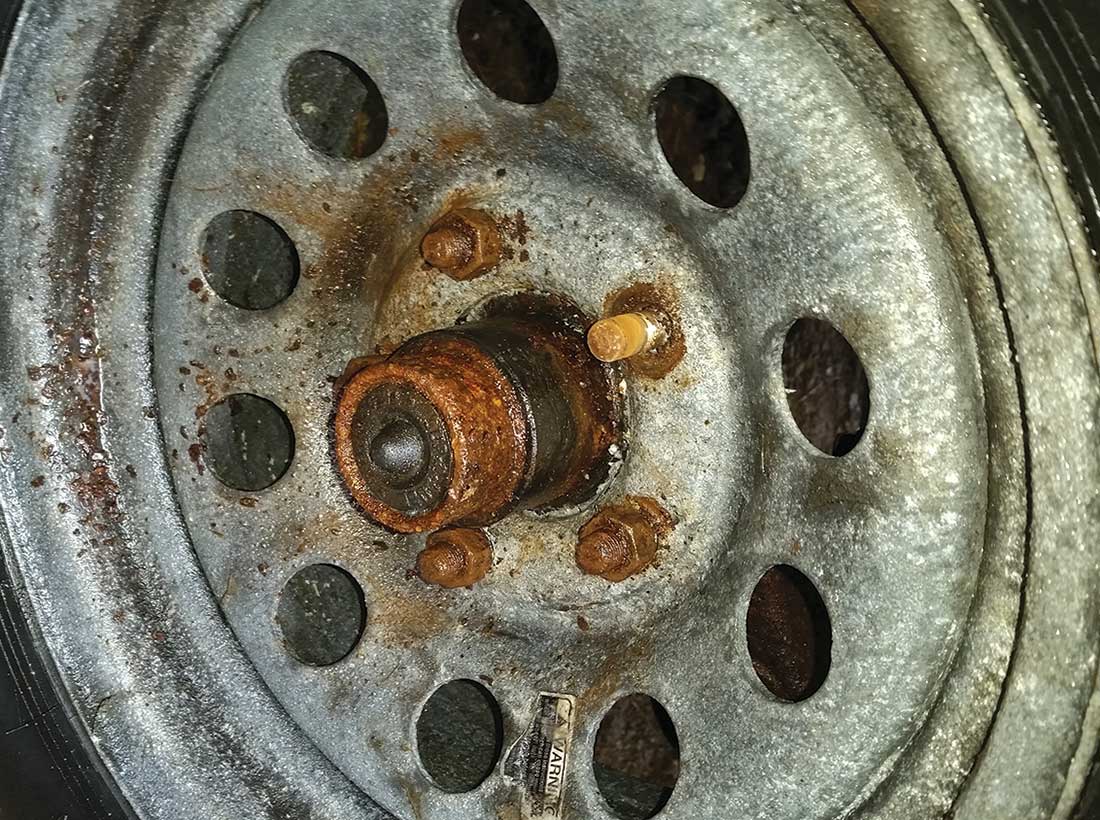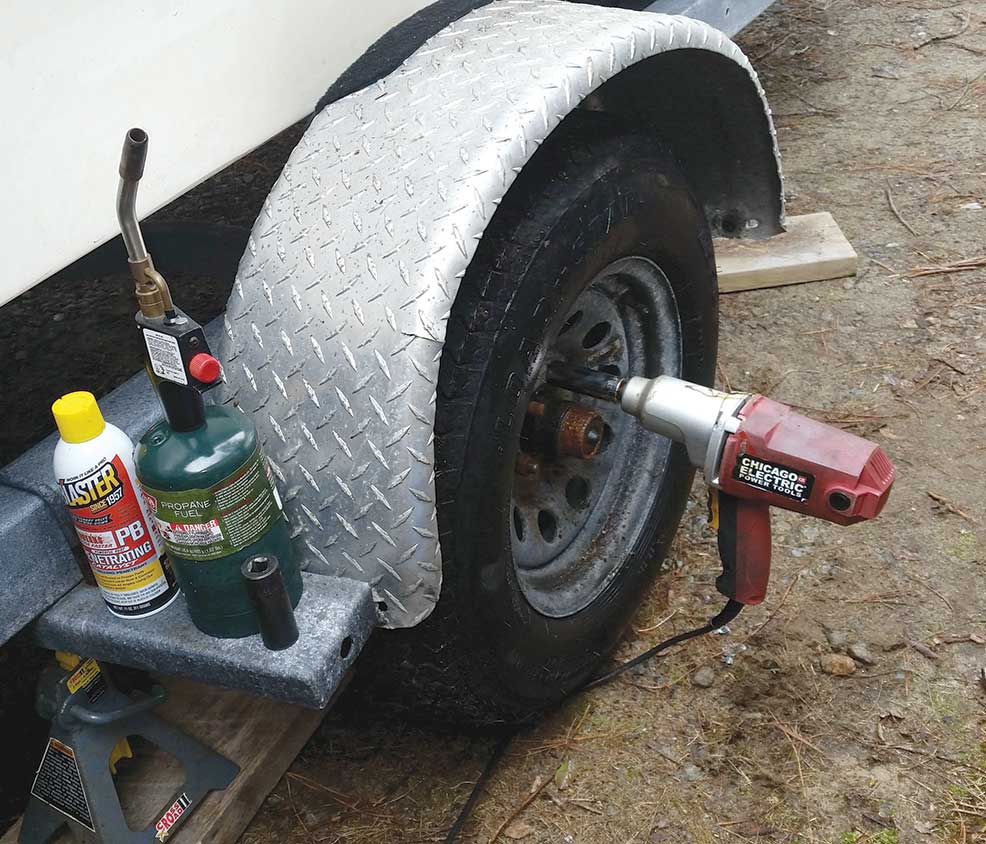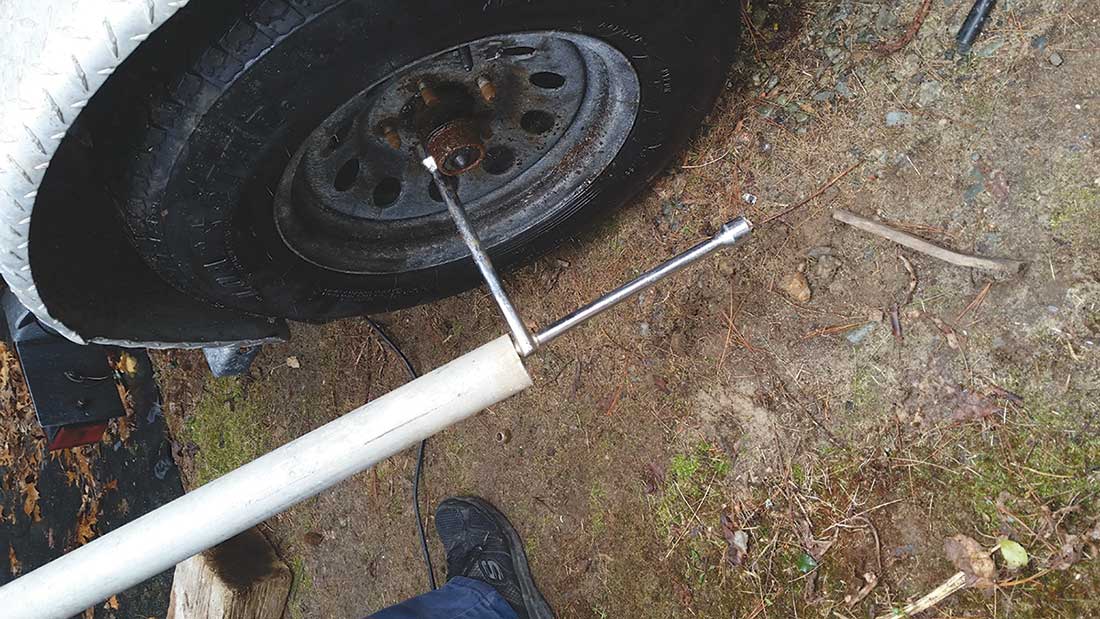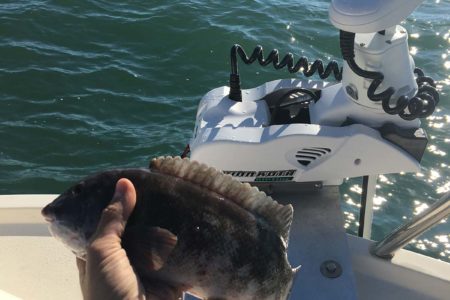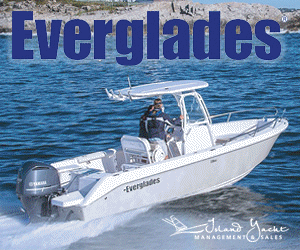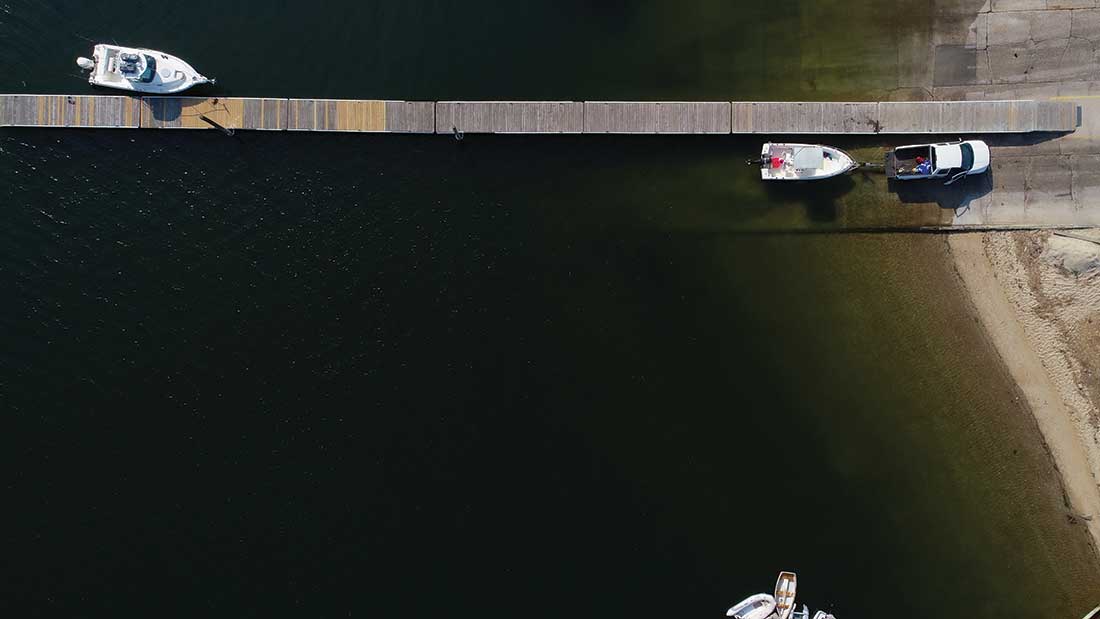
Before hitting the highway, try first sitting in the driveway with your trailer.
The 18-wheeler whizzed by so close its backwash blew my shirt up to my head and produced goose bumps along my neck.We were in a hell of dangerous spot. My client’s trailer had a flat tire on the driver’s side of a busy highway with very little room to spare between the trailer and the traffic speeding down both sides of the two lane highway.
He spent a considerable amount of money on his boat, electronics and fishing tackle but his means of getting his rig to the water seemed to be an afterthought. After all what could possibly go wrong with a single axle trailer? All the money he invested in fishing wasn’t worth a three-day old pogie if he couldn’t get his outfit to the launch ramp of his choice.
After decades of trailering boats of all sizes to and from boat ramps in several states I have seen enough rigs overturned, abandoned or crippled on the side of the road due to lack of proper preparation and maintenance. After the fact the owner told me he had a “slow leak” on that tire and kept putting air in it rather than having it repaired or replaced. And then he informed me that he had never, ever, changed a tire!
I didn’t know whether to scream or cry.
Feeling Tired
So, you think you’re ready to go fishing. Your boat is waxed, the electronics are installed, and you have charged the batteries and run the engine. Sounds like you have touched all the bases, so you pull out of your driveway and head onto the highway. Are you certain you’ve checked off all the boxes on the list? Not if the aforementioned is your only criteria for hitting the road. Even in this day of the internet when the answer to every question is just a key stroke away I still see trailer boatmen without a spare tire. If it’s kept out of sight in the bed of the truck it could be easy picking for the thieves that prowl the waterfront parking lots, looking to make an easy score on a tire and wheel, a winch or a spare tire.
My spare tire is bolted to a rack that is secured to the front of the trailer near the winch stand. Yes, it could be removed with a socket and breaker bar but it’s not a hit and run game like lifting one out of the truck bed. Also, there are tamper proof, anti-theft lock nuts that can only be opened with a special tool. If you are heading over the road you should make certain that your trailer tires are inflated according to the rating specifications and even more importantly, that you can get the lug nuts off to change the tire. If you have nothing but a standard four-socket lug winch, or an auto or truck type jack, you are probably heading for some serious trouble.
In our litigious society, protection and prevention from lawsuits are front and center on the minds of manufacturers and dealers. You probably don’t own an air or electric impact gun and neither do I, but when the manufacturer or dealer installs the wheels on your trailer they tighten them very tightly to ensure that the wheels won’t fall or vibrate off. Just humor me and take a look at the running gear (tires, wheels and axles) on trailers in a busy ramp parking lot. The vast majority of them have nuts that are rusted and frozen, if not rounded off from installation and removal with a typical eight-point socket rather than a tight fitting five-point that fully embraces the nut. Most of those nuts will require wire brushing to remove the rust before you can put a socket over them.
Buddy, Got a Spare?
During those years of trailering boats up from my home to the Jersey Shore and the tip of Cape Cod, I believe that trailer wheels, tires and bearings are perhaps the most overlooked aspects of getting your boat to and from the water safely. I recently attempted to remove the wheels on my single axle trailer to rotate the tires from right to left to even the wear. If you are a trailer boatman you are already aware that those tires are more likely to rot rather than have the thread wear out.
I opted for upgraded tires, rather than those that camewith the trailer, so the dealer installed them with an impact gun. You can bet those lugs are not coming off easy. I grease my bearings via a grease fitting on the face of the hub, which pushes the old grease out the inside edge of the hub, where I can wipe it off, rather than out the back where it is very easy to apply too much pressure and blow out the rear seals.
I use a five-point 13/16 socket on a long, heavy breaker bar to remove my lug nuts, yet it’s no match for the frozen nuts that were last removed to rotate the tires last fall. I borrowed an electric impact gun, which made a lot of noise but didn’t break the nuts. I had to resort to the breaker bar, I call the persuader, which is a 3-foot length of heavy walled stainless steel pipe. The screeching noise those nuts made as they were backed off ever so slowly told me that there was no way I would have removed those wheels if I had broken down on the side of the highway.
The best time to prepare your rig for the road is in your driveway, not on the skinny side of the breakdown lane with traffic whizzing a few feet of you as you wrestle with a flat tire or seized bearing. If you are not mechanically inclined make an appointment with a dealer or mobile mechanic to remove, inspect and replace your bearings. Break the nuts on the trailer wheels, wire brush the studs, and consider replacing the old nuts with new hardware of the same size and thread. They cost less than $2 each and it’s well worth the investment.
If you are performing this work yourself get a can of Never-Cease and coat the studs to ensure the nuts don’t rust on the studs. While you’re at it why don’t you take those tires to the nearest tire shop and have them replace the tire valves and reseal the bead with a good lubricant to prevent slow leaks. What might sound like a bit of work is nothing compared to dealing with a problem on the highway. That will not only scratch a day’s fishing, it will lead to unnecessary downtime and expenses.
According to the old statement, “you can pay me now, or pay me later” – it’s your choice.
